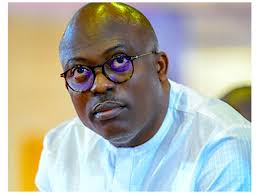Goodluck Jonathan
The issue of youth entrepreneurship in Africa is very critical, as Africa is the only continent in which we will witness a population boom in our lifetime.
Studies reveal the symbiotic relationship between youth unemployment and youth restiveness. Accordingly, most violent crises in Africa have been traced to a lack of education among its teeming youth population.
As a leader, you can decide through your policies to educate the youth, or face the consequences of failing to do so. The problem all African leaders have is how to manage the youth bulge. Do we consider this a ticking time bomb or an opportunity?
For me, there are two key areas we must invest our resources in if we are to convert this perceived time bomb to the opportunity I believe it is. The first is in requisite education and capacity building. This should be followed by enabling youth entrepreneurship..
Upon assumption of office as president of Nigeria, I launched a programme called the Presidential Special Scholarship Scheme for Innovation and Development (PRESSID.) This scheme nurtured a select cadre of professionals, to serve as facilitators for accelerated, sustainable, economic and technological advancement.
Each year, through competitive examinations, we selected between 100 to 120 first class graduates and sent them to the top universities in the world to study for higher degrees. These students were drawn from various STEM disciplines. Let me mention here that Oxford University was an integral part of this programme and indeed, a favourite for most of our applicants.
The essence of the programme was to get a crop of youth, over a period of time, who will advance our course technologically.
When I launched the programme, I mentioned that we were training young people who would take Nigeria to the moon. In addition to this, my administration also gave a series of educational incentives to university students across the country. We established twelve conventional universities and a specialised Maritime University. To assist the disadvantaged children in Northern Nigeria, we built 165 special schools known as “Almajiri Schools” that integrated Islamic culture into Western education.
In Nigeria and most African countries, there are well-educated young people. The problem is how to create opportunities for them. My administration came up with various programmes to encourage young entrepreneurs. The most popular was the Youth Enterprise with Innovation in Nigeria – YouWIN. It was a unique intervention launched in 2012, which targeted youth with unique business proposals in startups and the expansion of existing enterprises. YouWin was structured as a competitive cyclic initiative which invites and reviews Business Plans submitted by Youth. Young people who wanted to be entrepreneurs were asked to submit their business proposals. The best business plans were chosen on the basis of relevance, profitability, demand and practicability. The winners were trained and given grants.
We also launched The Graduate Internship Scheme (GIS). The objective of this was to provide temporary work experience for fresh graduates, to enhance their capacity to attract permanent jobs. To ensure that the Nigerian youth benefit massively from the ICT revolution, we created a special Ministry of Communication Technology. We wanted the Nigerian Youth to be self-employed and exploit the advantages of ICT. The Ministry, among other things, improved broadband penetration, and set up ICT incubation centres in Lagos and Calabar.
The efforts of the young software engineers at the Lagos Co-Creation Hub (CC Hub) became so successful that it did not only give birth to many thriving start-ups, but their activities also attracted the attention of Facebook founder, Mark Zuckerberg who chose it as his first stop during his first ever visit to Africa.
One sector we deliberately encouraged to stimulate job growth for the Nigerian Youth was the Nigerian entertainment industry. The sporting industry was also not left out. We encouraged our young people in that sector.
I will conclude this by urging contemporary African leaders to see youth entrepreneurship as a collective project transcending national boundaries.
Despite incredible challenges, Nigerian youths are achieving great things and placing Nigeria positively on the world map. Nigerian youths are an inspiration to their leaders.
I once said that I was not elected president of Nigeria to spread poverty; I was elected to generate and spread wealth. My belief in this regard is that getting a job or being a worker cannot completely cure the disease of poverty. It is only your own business that can provide such security and give you the financial freedom you need to prosper. That was why my Administration introduced these initiatives and policies, to enable Nigeria’s youths take their own destinies in their hands.
We may not have been perfect, but we did our best, and our best yielded an era of unprecedented economic growth for Nigeria. A growth that proved the truism that a nation’s wealth is not underneath the ground but between the ears of her people.
Under my watch, Nigeria was projected by CNN Money to be the third fastest growing economy in the world for the year 2015 and rated as the largest economy in Africa and the 23rd in the world by the World Bank and the IMF, with a GDP above half a trillion US dollars.
These, in a nutshell, are some of the ways we were able to promote youth enterprise; a topic that I know is of utmost interest to many of you here.
Dr Jonathan (GCFR) is former president of Nigeria.
Being excerpts of Jonathan’s speech during “A Conversation to Discuss Some of the Issues Relating to the Promotion of Youth Entrepreneurship at the Oxford Union on October 24, 2016.



